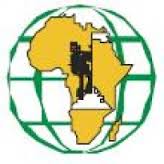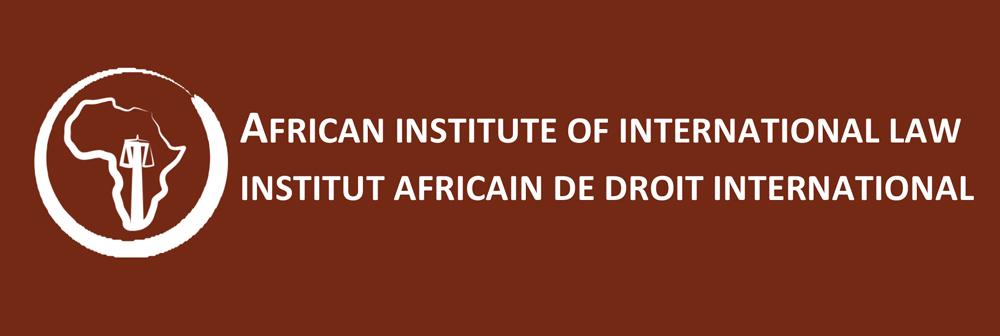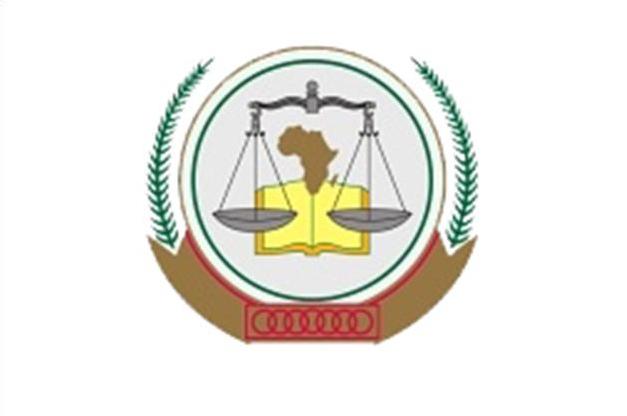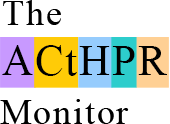I am delighted to welcome back Tétévi Davi, The Monitor’s Junior Editor with this piece on the Court’s recent judgement APDH v Côte D’Ivoire. This is another fascinating judgement, which Tetevi breaks down and analyses in the post below. As always, comments are welcome via contact@acthprmonitor.org. Enjoy! OW
Introduction
On 18 November 2016 the African Court on Human and Peoples’ Rights (Court) handed down its judgement in the case of Actions pour la protection des droits de l’Homme (APDH) v The Republic of Côte D’Ivoire (Judgement). This judgement is notable for its crystallisation of the definition of a ‘human rights instrument’ pursuant to Article 3 of the Court’s Protocol and the meaning of an electoral body’s independence and impartiality. With this judgement, the Court maintains applicants’ 100% success rate in cases decided on their merits and sets valuable precedents which, if effectively implemented, have the potential to strengthen the justness of electoral systems and the electoral bodies that govern them in Africa.
The Facts

The Applicant in this case was APDH, a human rights NGO based in Abidjan, Côte D’Ivoire. In 2014, APDH made an application to the Court asking it to rule that Ivorian Law no.2014-335 (the law) relating to the functioning and composition of the nation’s Independent Electoral Commission (IEC) was in violation of a number of human rights instruments. The IEC was established in October 2001 and is mandated to organise and supervise elections, accredit national and international observers, count ballots, and proclaim the final results of an election. The IEC is composed of 17 members, most of whom are either representatives of government ministers or representatives of political parties. Civil society representatives do form part of the IEC, however account for only 4 of the 17 positions available. Decisions of the IEC are made by a simple majority.
In its submissions, APDH argued that the law amended the structure of the IEC and ensured that the majority of its members were either government representatives or members of political parties, thus rendering the IEC neither independent nor impartial. As a result, APDH claimed that the law violates Article 17(1) of the African Charter on Democracy, Elections and Governance (2007) (Democracy Charter) as well as Article 3 of the ECOWAS Protocol on Democracy and Good Governance (2001) (ECOWAS Protocol). APDH also claimed that by adopting the law, a situation had been engineered by which the President could influence the electoral system during elections in order to benefit himself and/or candidates which his supports. This, the Applicants claimed, was a violation of the principle of the equality of all citizens before the law and the equal protection of all citizens by the law enshrined in Article 10(3) of the Democracy Charter, Article 3(2) of the ACHPR and Article 26 of the ICCPR.
The Judgement
1. Jurisdiction
As is standard, the Court first considered the issue of jurisdiction. In regards to personal jurisdiction, the Court noted that Côte D’Ivoire had deposited its special declaration under Article 34(6) of the Court’s protocol allowing individuals and NGO’s access to the Court. It also noted that as APDH had acquired observer status before the African Commission, an important additional requirement for NGOs under Article 5(3) of the Court’s Protocol, personal jurisdiction had been established. The Court also asserted its temporal jurisdiction, as the alleged violations took place after the special declaration was deposited. In regards to the Court’s material jurisdiction, the critical issue arose as to whether or not the treaties the Applicant claimed had been violated, namely the Democracy Charter and the ECOWAS Protocol, were indeed ‘human rights treaties’ within the meaning of Article 3 of the Protocol.

To answer this question, the Court sought guidance from the African Union Commission and the African Institute for International Law as to what constitutes a human rights treaty. Both institutions answered this question by examining the content and purpose of these treaties and affirmed that as they both confer fundamental rights and freedoms on individuals which states are obliged to protect and respect, they are definable as human rights treaties. In its decision the Court chose to address the issue in an almost identical fashion, opining that if the purpose of a treaty is to enunciate the subjective rights of people or groups and place mandatory obligations on states for the enjoyment of these rights, then it is a human rights treaty. The Court reasoned that the requirement of the Democracy Charter and the ECOWAS Protocol that states establish independent and impartial electoral bodies was aimed, albeit indirectly, at implementing a number of civil and political rights such as the right to vote and the right to participate freely in elections as enshrined in the African Charter. As states were also obliged to respect these rights, then the Court concluded that that they were human rights treaties within the meaning of Article 3 of the Protocol.
2. Admissibility
The court next addressed the issue of admissibility. Côte D’Ivoire’s first argument was that the case should be declared inadmissible as the APDH had violated Rule 40(3) which prohibits applications containing disparaging or insulting language. Côte D’Ivoire considered that the offensive language was APDH’s questioning as to why the law had not been censored by the Constitutional Judge and why the President of the Constitutional Council had resigned without explanation. It also argued that the very act of questioning the independence and impartiality of the IEC was an indirect assault on the dignity and honour of the President and thus offensive. The Court remarked that in order to fall foul of this particular rule, language must be used “in a manner calculated to pollute the minds of the public or any reasonable man to cast aspersions on and weaken public confidence” , a test previously espoused by the African Commission. The Court held that Côte D’Ivoire had not produced any evidence to show how the language of the application conformed to this definition and that APDH had merely presented the facts as they occurred. It therefore dismissed this argument.
The second issue was whether or not APDH had exhausted domestic remedies in accordance with Rule 40(5). Côte D’Ivoire argued that domestic remedies had not been exhausted as the applicants did not seize the Constitutional Council to assess the law’s constitutionality and neither did they bring an administrative law action to review the legality of the law. In response to these submissions, the Court reiterated the Zongo test for admissibility, namely that a remedy must be “available, effective and sufficient”. The Court reasoned that as Ivorian law only permits the Administrative Chamber to hear a case concerning the abuse of authority from administrative authorities, this jurisdiction was not competent and therefore not sufficient to hear the applicant’s complaint. Furthermore, the Court articulated that as Ivorian law only allows human rights associations to refer cases to the Constitutional Council that concern ‘public freedoms’, the applicants could not refer their case to this court either. Accordingly, the Court found that local remedies had been exhausted.
3. The Merits

Having satisfied itself that the application was admissible and that it had jurisdiction over the matter, the Court considered that the central issue in the application was the independence and impartiality of the IEC and noted that neither the Democracy Charter nor the ECOWAS Protocol defined the terms ‘independent’ or ‘impartial’. The Court therefore took it upon itself to define these terms. In defining the term ‘independent’, the Court referred to the Dictionary of Public International Law which defines the term as “the fact of an entity or person not depending on any authority other than its own or at least not depending on the State”. In regards to ‘impartiality’, the Court also referred to the dictionary’s definition which is “the absence of bias, prejudice and the absence of bias”. Applying these definitions to the structure of the IEC, the Court noted that government representatives outnumbered all others on the IEC, and in particular that the Government was represented by eight members to other parties four which demonstrates a clear imbalance. The Court reasoned therefore that the IEC was neither independent nor impartial and subsequently violated Article 17 of the Democracy charter as well as 3 of the ECOWAS Protocol. Furthermore, the Court held that through the imbalance that the law creates, the President is in a far more advantageous position in the run up to elections as compared with other candidates and that by not placing all candidates on equal footing in the run up to elections, the law also violates the principle of equal protection enshrined Article 10(3) of the African Charter, Article 3 (2) ACHPR and article 26 of the ICCPR.
In light of these violations, the Court ordered Côte D’Ivoire to amend the law and submit a report on the amendments within one year.
Comment and Analysis
A welcome aspect of this judgement was the Court’s broad and inclusive interpretation of a ‘human rights instrument’ for the purposes of determining its jurisdiction pursuant to Article 3 of the Protocol. The Court’s decision to look to the purposes of a treaty which it took to mean the substantive rights a convention confers, in addition to the obligations it places on states, means that following this Judgement a host of treaties which State Parties to the Court have ratified both at the regional and international level, can now likely be relied upon by applicants bringing claims before the Court. Furthermore, the Court’s willingness to interpret provisions guaranteeing fair elections as indirectly protecting other fundamental human rights is also of note, as now it may be only necessary to show some indirect link between the rights in the treaty an applicant is seeking to rely on and other recognised fundamental rights in order for it to be considered a human rights treaty. This marks a positive development in the Court’s jurisprudence because, as has been elsewhere noted, the greater the number of instruments which individuals can have recourse to before the Court, the more robust the system of human rights protection will be in Africa.
As to admissibility, and in particular the prohibition on applications which use abusive or derogatory language, the Court’s endorsement of the African Commission’s test that an application is inadmissible if the language “ is calculated to pollute the minds of the public or any reasonable man to cast aspersions on and weaken public confidence” was both dubious and disappointing. A moment’s contemplation of this test gives rise to a host of questions: What exactly is “polluting the minds” of the public? What kind of statements are capable of achieving this? What does “casting aspersions” mean? Casting aspersions on whom? What is the meaning of “weakening public confidence”? Weakening public confidence in what, or whom? Perhaps more worrying than the ambiguity of this test, is that it seems to suggest that an application could be declared inadmissible because, although entirely factual, some statements used in it cast the respondent state in a negative light. It is one thing for statements to be slanderous and false, but quite another for a perfectly well founded application to be struck out simply because the Court decides that it “weakens public confidence”, even though its contents may be true. This seems a frighteningly vague and arbitrary test for the Court to have endorsed and going forwards, the Court should either make this an insurmountably high threshold or alter the definition in line with other regional courts such as the ECHR, where for an application to be declared inadmissible due to language it must be “knowingly based on untrue facts” or include the “persistent use of insulting or provocative language”.

On the issue of exhaustion of public remedies, the Court’s analysis is to be welcomed. It’s restatement of the Zongo test and its application to this case should be familiar to regular readers and it shows that it is not enough for states to simply have higher courts which people may theoretically appeal to in cases of human rights violations, but that such courts must actually be accessible to applicants in concrete cases. It is worth noting the level of detail that the Court engaged in in this section of this judgement which saw it considering the content and purpose of the domestic laws in question with great care. The Court has done this before in previous cases and in the present case has once again illustrated that it will not simply accept a state’s assurances that domestic remedies are available but will look itself in detail at the content and procedural framework of domestic legislation to determine whether local remedies are genuinely available. Furthermore, the Ivorian Constitutional Court’s requirement that cases brought before it concern ‘public freedoms’ appears to have excessively narrowed the class of cases that could be entertained and the Court’s holding that the remedy was therefore not sufficient sets a precedent that the sorts of cases that national jurisdictions can hear must also not be unduly limited. This is positive, as it encourages states to enable their higher domestic Courts to hear and redress a wider variety of cases or risk them being appealed to the African Court for a ruling.
In finding that the Ivorian law violated the Democracy Charter and ECOWAS Protocol, the Court’s willingness to give the terms ‘independent’ and ‘impartial’ an expansive meaning is also to be commended. The broad definition that the Court gave these terms in line with those expressed in the Dictionary of Public International Law, potentially leaves the door open for many challenges to be brought before it as under these definitions, there are currently many nations which do not have independent or impartial electoral commissions. It is also material that the Court ruled that a lack of independence and impartiality could be inferred from the structure of the Commission. This shows the Court’s willingness to go beyond superficiality and examine state institutions in detail in order to determine whether they are compliant with human rights obligations or not.
Finally, the fact that the Court is now considering violations of a wider class of human rights treaties is a positive step. In earlier judgments such as Zongo and Mtikalia, the Court was only willing to consider violations of the African Charter and nothing else. Its jurisprudence then expanded to using provisions from other treaties to bolster the protections afforded by the African Charter, however now we have seen another evolution in the Court’s jurisprudence whereby the it is willing to consider the rights in other treaties as having been violated. This seems to be an auspicious sign that the Court is moving away from a reliance on the African Charter, finding its footing and growing bolder in its protection of fundamental rights
